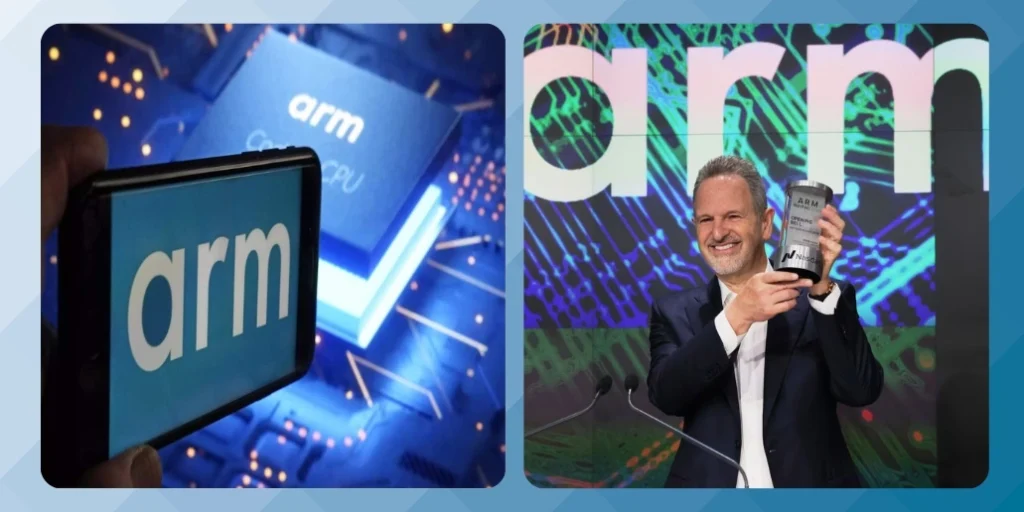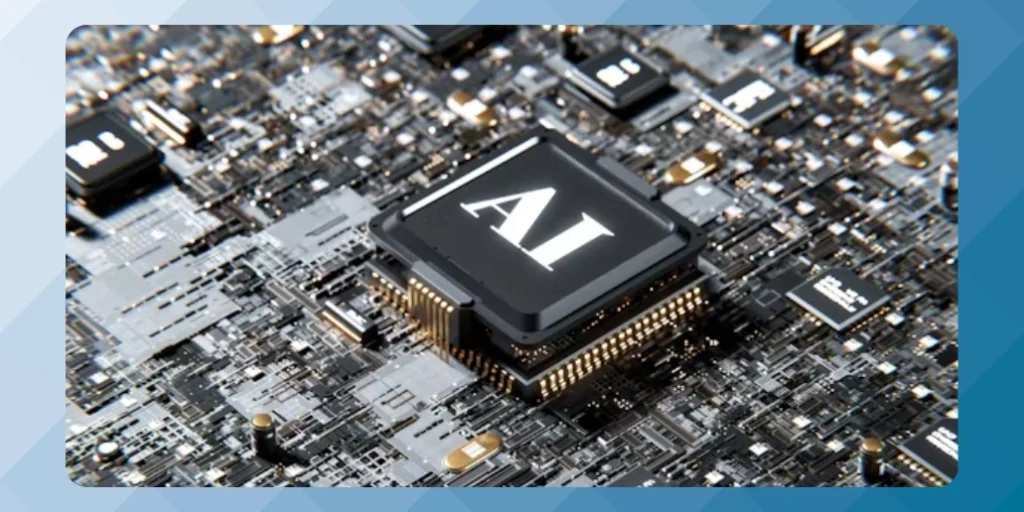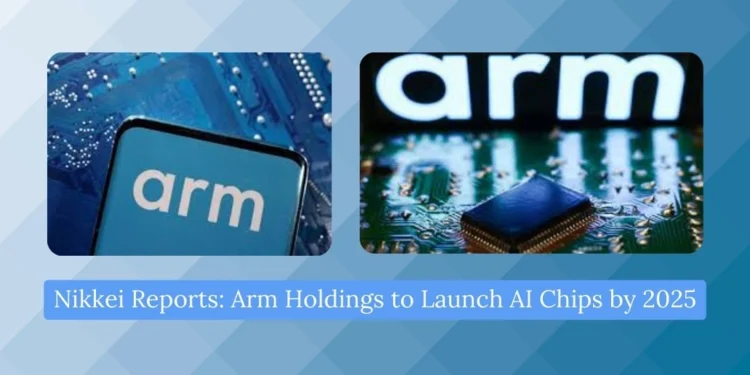According to a new report from Nikkei Asia, SoftBank Group subsidiary Arm Holdings is embarking on an ambitious plan. The plan is to develop and launch its artificial intelligence (AI) chips by 2025.
This move could see the British chip designer expand beyond its core licensing business into direct chip production, posing exciting opportunities and challenges.
Setting up an AI Chip Division
The report reveals that Arm will establish a dedicated AI chip division to design and engineer new AI processors. The goal is to have a working prototype ready by Spring 2025 following an initial research and development phase.
Mass production would commence in the Autumn of 2025 once manufacturing partners are on board. Arm recognizes the immense promise held by AI and wants to play a leadership role in driving this area forward. Its chip designs are widely used across numerous devices; however, moving into chips allows greater control of the technology roadmap.
By launching a dedicated AI silicon, Arm can ensure its architecture remains optimized for the latest workloads in areas like machine learning.
Securing Manufacturing Support
Producing chips at scale requires teaming up with specialized foundry partners. The report mentions Arm has already begun critical negotiations with Taiwanese semiconductor giant TSMC to handle mass production.
TSMC’s industry-leading 7nm and 5nm node technologies would be well suited to manufacture Arm’s initial AI chips. Securing TSMC’s manufacturing services will be necessary for meeting the ambitious 2025 target dates.
Their proven capability and capacity can help accelerate Arm’s timeline. However, demand currently exceeds supply across the semiconductor industry. Arm must commit significant planned volumes to TSMC to reserve capacity and avoid production delays.

Financial Backing from SoftBank
Starting a new chip division and product line carries substantial costs. Initial development showed that expenses could reach hundreds of billions of Japanese yen. Thankfully, yen rent company SoftBank fully supports the initiative and will contribute financially.
SoftBank can easily fund these startup costs as one of the world’s largest technology investment firms. Their support increases confidence that Arm’s AI chip project has the resources to succeed. Once chips are manufactured, the division may spin off into its entity, which SoftBank wholly owns for autonomy.
Targeting Data Center and Cloud Markets
Rather than competing directly with clients, Arm focuses first on the burgeoning data center market. Many cloud and internet companies are building custom silicon for artificial intelligence workloads.
They seek more control and performance than off-the-shelf processor options allow. Arm’s AI chips could power the next generation of cloud and on-premise servers. Its open licensing model has proven popular in this sector.
Offering specialized AI hardware tailored for complex models would strengthen ties with key customers. It represents a massive opportunity as AI increasingly underpins cloud services and applications.
Reducing Reliance on Nvidia
Currently, the dominant player in AI and GPU acceleration is Nvidia. However, their technology has onerous lock-in effects that give Nvidia outsized control. Customers want more flexible, open alternatives that are easier to integrate and upgrade.
By entering the AI chip business, Arm aims to reduce over-reliance on any single vendor like Nvidia. Its chips could displace some Nvidia sales while increasing customers’ choice and bargaining power. This strategic shift aligns with Arm’s open ecosystem roots and promises healthier long-term competition.
Doubling Down on Long-Term AI Growth
Bets by investors that Arm will prosper from AI computing tailwinds have doubled the company’s market value since its public listing. This underscores the appetite for Arm to leverage its proven expertise to profit directly from the AI revolution.

While 2025 product launch dates may seem distant, they represent critical future growth drivers as AI saturates every industry. Achieving the milestones revealed in this Nikkei report would signify Arm is firmly committed and on track to succeed in this ambitious expansion. Suppliers, customers and shareholders will watch closely for further updates on its “Bold Plans to Launch AI Chips”.
Conclusion
In conclusion, Arm moving into direct AI chip production is an exciting strategic pivot that could reap huge rewards if executed skillfully. With SoftBank’s support and over 30 years in semiconductors, Arm is well-placed to make its mark in this promising market.
Only time will tell if they can realize Nikkei’s bold vision. But if anyone can, it’s arguably synonymous with the modern mobile era.
Read also:



















